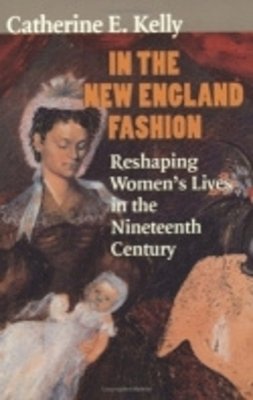
In the New England Fashion
Catherine E. Kelly
In the first half of the nineteenth century, rural New England society underwent a radical transformation as the traditional household economy gave way to an encroaching market culture. Drawing on a wide array of diaries, letters, and published writings by women in this society, Catherine E. Kelly describes their attempts to make sense of the changes in their world by elaborating values connected to rural life. In her hands, the narratives reveal the dramatic ways female lives were reshaped during the antebellum period and the women's own contribution to those developments. Equally important, she demonstrates how these writings afford a fuller understanding of the capitalist transformation of the countryside and the origins of the Northern middle class.
Provincial women exalted rural life for its republican simplicity while condemning that of the city for its aristocratic pretension. The idyllic nature of the former was ascribed to the financial independence that the household economy had long provided those in the farming community. Kelly examines how the juxtaposition of rural virtue to urban vice served as a cautionary defense against the new realities of the capitalist market society. She finds that women responded to the transition to capitalism by upholding a set of values which point toward the creation of a provincial bourgeoisie.
Product Details
About Catherine E. Kelly
Reviews for In the New England Fashion
Crista DeLuzio, Southern Methodist University
Modernism/Modernity
Kelly's work is concerned, above all, with the place of women in the period. The reader will find fascinating sections of the book dealing with domestic tasks and responsibilities, paid and unpaid work, education, courtship and marriage, the transformation of love, private and public sociability, and fashion and consumption.... This is a well-analyzed, carefully researched study.
Billie Barnes Jensen, San Jose State University
History: The Review of New Books
With complexity and thoughtfulness the author addresses middle-class formation, rural capitalism, separate spheres ideology, and the contours of the affectionate family.... This provocative book demands consideration for its creative thinking alone.
Lisa Wilson, Connecticut College, New London, CT
The Journal of American History
This rich written legacy first spelled out the superiority of rural life over urban society as a way of clarifying economic change.... This fine study should stimulate other scholars to pursue and evaluate Kelly's methods and insights.
Mary H. Blewett, University of Massachusetts
American Historical Review
